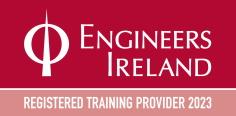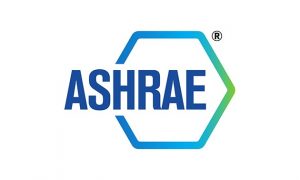Entropic provide a series of educational CPD presentations in the areas of building ventilation, energy performance, comfort, safety and regulatory compliance.
Entropic is an authorised Engineers Ireland Training provider

If the CPD course you need is not listed below, please contact Entropic
Laboratory and Fume Cupboard
Ventilation Systems
Constant air velocity through the sash opening, fast acting systems for occupant safety, room pressure control while varying extract air volumes through fume cupboards, energy efficiency in laboratory ventilation systems, diffusers for laboratories, comfort and velocities around the fume cupboard, HVAC controls system for labs
Data Centre
Ventilation Systems
Low energy cooling systems
Hyperscale data centres
Enterprise and Co-lo data centres
Air intakes, low pressure drop, rain and snow separation
Dampers, condensation and ice risk
AHU design
Air diffusion
Ventilation Equipment For Large Industrial Projects
Guidance for selection and use of large format:
Diffusers
Dampers
VAV dampers
Fire dampers
Louvres
Air measuring grids
AHUs
UKCA and CE Marking Of Fire Dampers And Control Of Smoke And Fire
UK and European Regulation and the law in relation to UKCA and CE marking of fire dampers in ventilation systems. The law, standards and best practice in relation to fire protection.
VAV
Systems
Low energy VAV (variable air volume) systems and demand based ventilation systems
VAV systems in relation to good indoor air quality and COVID-19
Constant pressure ductwork systems
VAV and the lowest energy buildings
Comfort In The Indoor
Environment
The 6 factors controlling thermal comfort, the PMV and PPD, draught rating, asymmetric temperature difference, glare index, design and modelling to guarantee thermal comfort.
Ventilation Systems
Explained
Displacement and mixing ventilation, natural, mechanical and mixed-mode ventilation, chilled beams and fan coil units, VRF-, VRV- and VAV-based ventilation systems.
Ventilation System
Efficiency
Improvement of building efficiency through optimised design and correct integration of ventilation system components – air handling units, chillers, ducting, dampers, terminal units and control methods. Finding a balance between energy efficiency, capital investment, industry regulations and comfort.
Low Energy Offices, Hospitals
And Cleanrooms
A closer look at comfort, air quality, energy efficiency and regulatory compliance with a focus on some important and common building types.
Commercial Kitchen Ventilation Systems
Reducing energy consumption, maintenance costs and the risk of fire. Filtration systems. EcoKitchen and OCEAN for EcoKitchen systems.
Swimming Pool
Ventilation
Swimming pool ventilation requirements, minimising and preventing corrosion, energy optimisation, humidity control.
Hospital Ventilation
Systems
Requirements for hospital ventilation based on HTM 03-01 (specialised ventilation for healthcare premises), HTM 05-02 (fire code), operating theatre ventilation models, HEPA filtration.
Air Handling Unit Construction And Performance
Air filtration, fan and motor efficiency, specific fan power, heating, and cooling, humidification and dehumidification, energy recovery methods. Factory acceptance testing, assuring performance via Eurovent and EN 1886, HTM air handling unit requirements.
Optimised Chiller Performance And Lifespan
Refrigerant use, energy reduction, Energy Efficiency Ratio (EER) and European Seasonal Energy Efficiency Ratio (ESEER), circuits, compressors types, ISO 50001.
CDM – Commissioning, Demonstration And Maintenance
Commissioning protocols, post-occupancy evaluation, maintenance
requirements for life-critical systems, factory acceptance testing of air handling units, recommended maintenance intervals and procedures.
Book a CPD course





